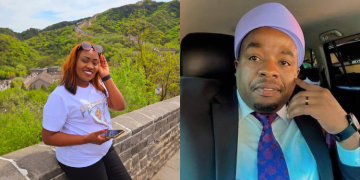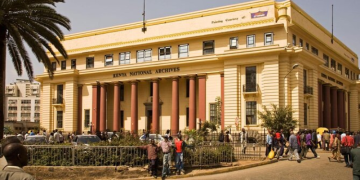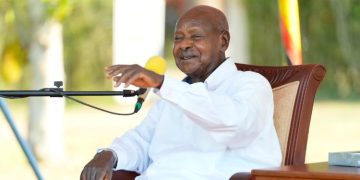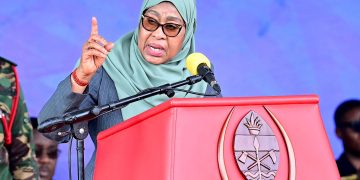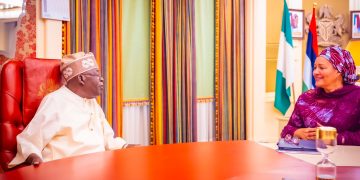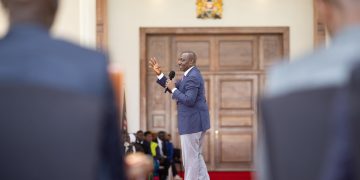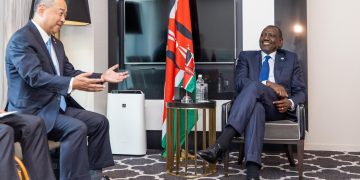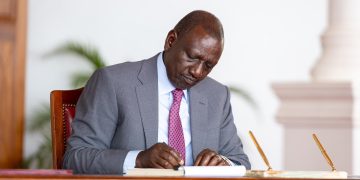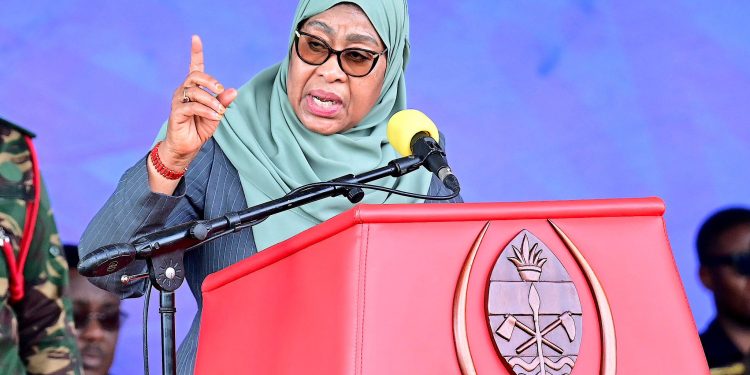On October 29, 2025, Tanzanians will head to the polls to elect the President, Members of Parliament, and local Councillors. But unlike past elections, this one stands out for two reasons.
First, there is no real opposition in the presidential race.
Second, for the first time in the nation’s history, a woman, incumbent president Samia Suluhu Hassan, will appear on the ballot.
On August 27, the National Electoral Commission (NEC) cleared Suluhu of Chama Cha Mapinduzi (CCM) as the party’s presidential candidate.
At the same time, it blocked ACT-Wazalendo’s hopeful Luhaga Mpina and disqualified CHADEMA, the country’s largest opposition party, from the polls until 2030.
Meanwhile, CHADEMA’s leader, Tundu Lissu, remains behind bars on treason charges for calling for reforms. In effect, Suluhu will be running against herself.
This raises a troubling question: Is Tanzania truly holding an election, or simply formalizing a coronation?
Who is Samia Suluhu Hassan?
Suluhu is Tanzania’s first female president and a veteran politician whose career spans over two decades.
She began in Zanzibar’s House of Representatives in 2000, later serving as Minister of Youth, Employment, Women and Children, then Minister of Trade, Tourism, and Investment.
In 2010, she entered national politics as a Member of Parliament for Makunduchi, winning by a landslide.
She later became Minister of State for Union Affairs and, in 2014, vice-chairperson of the Constituent Assembly tasked with drafting a new constitution.
In 2015, she made history as Tanzania’s first female Vice-President under John Magufuli.
After Magufuli’s sudden death in March 2021, she ascended to the presidency, the nation’s sixth head of state and its first woman.
Also Read: Tanzania Shuts Down Church After Bishop Criticized Samia Suluhu
Her rise initially inspired hope.
She reversed Magufuli’s COVID-19 denialism by embracing a scientific response, reopened Tanzania to the international community, promoted investment and tourism, and spoke of “reconciliation, resilience, reform, and rebuilding.”
Civil society organizations cautiously welcomed the tone of change. For a moment, it seemed Tanzania was charting a new democratic path.
From Reformist to Ruler
That moment has since faded. Today, critics argue she has turned state institutions into instruments of control.
Civil society has been restricted, journalists intimidated, and opposition leaders dismantled.
On January 12, 2025, activist Maria Sarungi Tsehai was abducted in Nairobi and later released under pressure, an incident that underscored the growing climate of fear.
Others have not been so fortunate. CHADEMA’s exclusion from the 2025 elections and Lissu’s continued imprisonment fit into a broader pattern of repression; arbitrary arrests, abductions across borders, and systemic harassment of dissenters.
The judiciary’s independence is under question, while marginalized groups such as the Maasai, women activists, LGBTQIA+ communities, continue to face state hostility.
What began as a presidency of reform has hardened into one of consolidation. Suluhu has allied herself with Magufuli’s old guard, embraced hardliners, and tightened her grip on Tanzania’s political field.
The Global Playbook of Power
Suluhu’s tactics are not uniquely Tanzanian. Leaders across the globe have manipulated constitutions and electoral systems to entrench themselves in power.
They all follow a familiar script: weakening opponents, bending laws, and presenting sham elections as proof of legitimacy.
Like Ferdinand Marcos in the Philippines, who declared martial law, censored the press, and jailed opponents such as Benigno Aquino Jr., Suluhu has relied on legalistic manoeuvres to clear her rivals.
Like Robert Mugabe in Zimbabwe, who sidelined Joshua Nkomo’s ZAPU and later relied on intimidation and electoral manipulation to cement ZANU-PF’s dominance, she has fused state and party into one.
Like Richard Nixon in the United States, who weaponized state agencies against political enemies until Watergate forced his downfall, Suluhu has blurred the line between public institutions and partisan survival.
History tells us this approach often works, until it doesn’t. Nixon resigned in disgrace. Marcos fled into exile. Mugabe, once untouchable, was toppled by his own generals.
Tanzania’s Laws Under Strain
Critics argue that Suluhu’s path violates Tanzania’s Constitution and electoral laws.
Article 21 of the Constitution guarantees every citizen the right to participate in elections and to seek public office. By disqualifying CHADEMA and blocking ACT-Wazalendo, the NEC has effectively stripped millions of voters of that right.
The Elections Act requires the process to be “free, fair, and transparent.” Yet opposition leaders say the NEC’s arbitrary rejections, coupled with the Registrar of Political Parties’ selective enforcement of the Political Parties Act, have undermined fairness.
Even the NEC’s supposed independence is questioned, as commissioners are appointed by the president, raising doubts about impartiality.
Instead of protecting democracy, the system appears designed to shield CCM and Suluhu’s incumbency.
Electoral Reforms or Their Absence
Local elections in 2024 offered a preview of what was to come. Opposition candidates were disqualified in droves. Political violence claimed lives. CCM swept more than 98% of the vote.
Now in 2025, the pattern has hardened. CHADEMA was barred for allegedly refusing to sign the NEC’s mandatory code of conduct, a decision extended to all by-elections until 2030.
Its leader, Tundu Lissu, a survivor of a 2017 assassination attempt, faces treason charges carrying the death penalty.
Also Read: Profile of Tundu Lissu: Shot 16 Times During Magufuli’s Time, Jailed Under Samia Suluhu Rule
ACT-Wazalendo’s candidate Mpina was blocked from submitting nomination papers, with the NEC claiming he “lacked qualifications.” His party denounced the decision as “embarrassing” and “a dangerous precedent.”
With CHADEMA sidelined, ACT barred, and other critics silenced, the electoral field has been cleared for Suluhu. She is now seeking her first full electoral mandate after inheriting power in 2021.
Yet stripped of competition, this election looks less like a contest and more like a staged endorsement.
Elections or Coronations?
If Suluhu is as popular as her supporters claim, why fear fair competition?
Once hailed as a reformer, she now risks being remembered as the dictator-in-chief who dismantled the freedoms Mwalimu Nyerere and Tanzania’s founders worked so hard to build.
A nation once admired as a Pan-African beacon of democracy now edges toward one-woman rule.
Lessons from History
From Washington to Manila to Harare, history warns that leaders who rig the field eventually stumble on their own stage. Nixon’s enemies list brought his downfall. Marcos’s martial law regime ended in exile. Mugabe, once a liberation hero, died deposed and disgraced.
Suluhu may succeed in tightening her grip today, but she cannot escape history’s verdict. Tanzania’s founding fathers fought for freedom, dignity, and democracy. Their daughter nation now risks trading that inheritance for authoritarian certainty.
Final Word
On October 29, Tanzanians will not cast votes in a genuine contest. They will ratify a preordained outcome. This is not democracy. It is a coronation. Tanzania Votes Without a Choice: Suluhu vs. Suluhu.
Follow our WhatsApp Channel and X Account for real-time news updates.

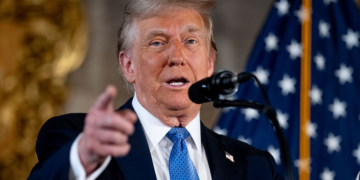

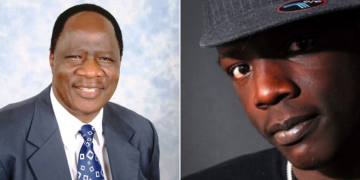
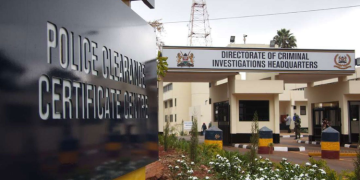

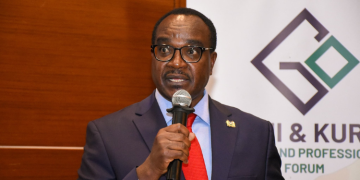
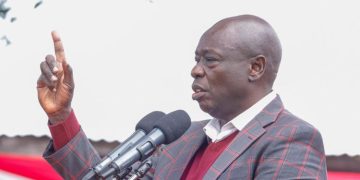
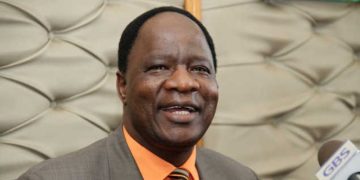








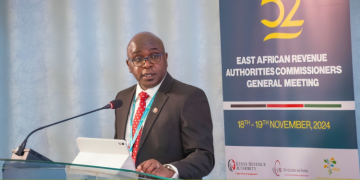

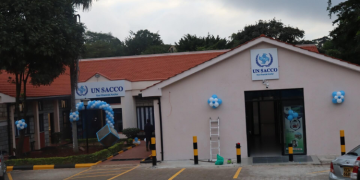
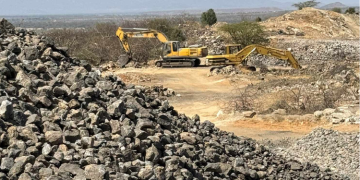
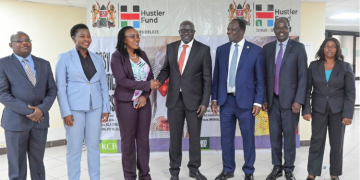




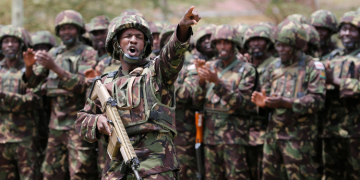


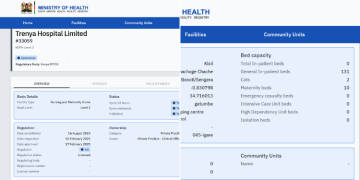


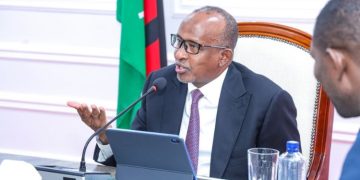



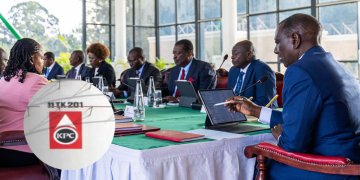


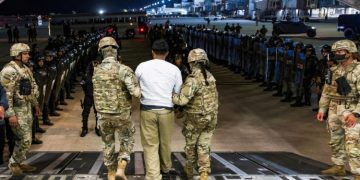




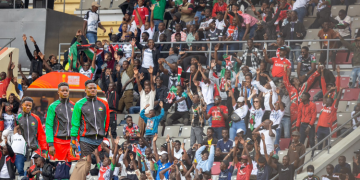





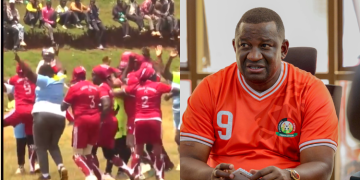



![Ntv Anchors Bring Village To Standstill With Heartwarming Birthday Party [Photos] A Photo Of Ntv Swahili Anchors Lofty Matambo And Fridah Mwaka During Their Birthday Celebration In Kilifi County Photo/ Lofty Matambo And Fridah Mwaka]( https://thekenyatimescdn-ese7d3e7ghdnbfa9.z01.azurefd.net/prodimages/uploads/2025/09/A-photo-of-NTV-Swahili-anchors-Lofty-Matambo-and-Fridah-Mwaka-during-their-birthday-celebration-in-Kilifi-County-PHOTO-Lofty-Matambo-and-Fridah-Mwaka-360x180.png)

